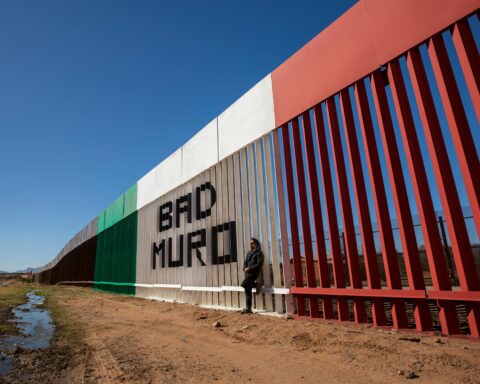John Manley — the president and CEO of Canadian Council of Chief Executives — criticized the Harper government Tuesday for mismanaging bilateral relationships with China and Mexico, and reiterated a call for the incoming Liberal government to pursue a free trade agreement with China.
There are reasons to think that isn’t out of the question.
“We have very important trading relationships with both Mexico and China. And quite frankly, the Harper government didn’t manage those relationships particularly well,” Manley, whose organization represents 150 CEOs of Canada’s biggest companies, said in an interview on BNN.
“Smart, principled engagement of China must be at the centre of Canadian foreign policy.”
This comes after an open letter Manley sent to Prime Minister-designate Justin Trudeau last week, which called for a “comprehensive bilateral economic agreement” with China, the reversal of the visa requirement for Mexican visitors and the ratification of the Canada-EU agreement and the TPP (Trans-Pacific Partnership).
“We urge your government to reverse the 2009 decision that requires most travellers from Mexico to obtain a visa before visiting Canada. With regards to China — our country’s second-largest trading partner, and soon to be the world’s largest economy – we believe the time has come to seek a comprehensive bilateral economic agreement. Smart, principled engagement of China must be at the centre of Canadian foreign policy,” Manley wrote.
China requires immediate attention
He elaborated on those points Tuesday, days after the CEO of Ford Canada, Dianne Craig — a member of the Canadian Council of CEOs — spoke out against the TPP.
“Ford is one of our members, likewise is Linamar, one of our largest auto part companies, which supports TPP. So I don’t think there’s a unanimous view. I think overall, though, what I’d say…is this: if TPP doesn’t happen, well then life goes on. If TPP does happen, and the United States and Mexico are part of it, then Canada really needs to be there. We can’t afford, for our national interests, to be excluded from an an agreement in which two of our three largest trading partners are there,” Manley said.
Since TPP ratification on the U.S. side could be held up by Congress, Manley didn’t think there was any reason for Trudeau to “lose sleep” over it yet.
“We don’t have to agree with China on everything, but we do need to engage China.”
He said China, however, required immediate attention, adding that, like Australia and New Zealand, Canada should pursue a free trade agreement.
“Australia, while being a strong proponent of human rights — a strong supporter of rule of law — all of the things that Canada stands for, has managed to negotiate a free trade agreement with China. As has New Zealand. And they are benefiting — their economy is benefiting significantly in both cases,” Manley said.
“We seem to have a hard time deciding whether we want to do business with China or not, and we blow warm and cold. I think a consistent, lasting approach to China — multiple visits by our prime minister, by our minister of foreign affairs, by our minister of trade, and by our minister of industry, would yield benefits in the years to come. We don’t have to agree with China on everything, but we do need to engage China.”
Deepening relationship with China
While the Harper government signed and ratified, not without controversy, a foreign investment protection agreement with China, and released an economic complementarities study in August 2012, Ottawa preferred an incremental approach with regard to trade liberalization, reaching individual market access agreements for products such as beef, cherries, and blueberries.
“There are many mechanisms other than free trade agreements to allow us to deepen our trade relationship with China,” Trade Minister Ed Fast said last November.
[T]he Harper government wanted to see the “more balance” in the trading relationship before moving forward with negotiations. The Liberals have seemed more eager.
In May, he clarified that the Harper government wanted to see the “more balance” in the trading relationship before moving forward with negotiations.
The Liberals have seemed more eager.
As Australia moved to implement their concluded free trade agreement with China, Liberal MPs — including Ralph Goodale, Chrystia Freeland, and Scott Brison — accused the Conservatives of bungling the relationship.
More recently, the Liberals named Peter Harder, who serves as president of the Canada-China Business Council, to head their transition team.
That could be a sign of things to come.
Published in partnership with iPolitics.ca.




